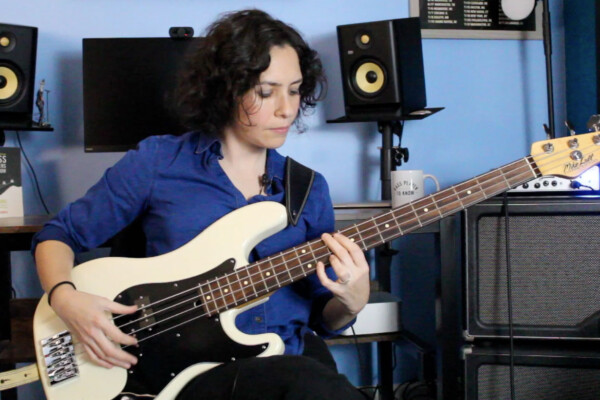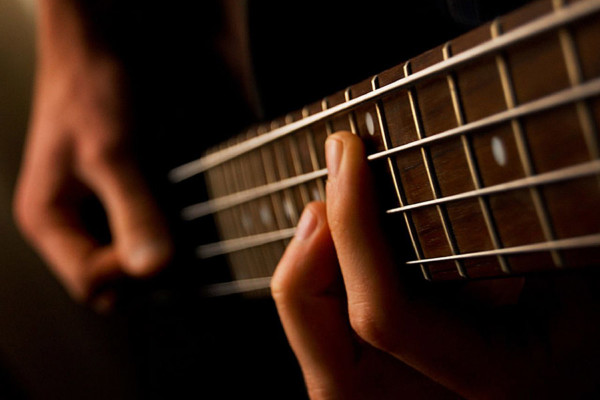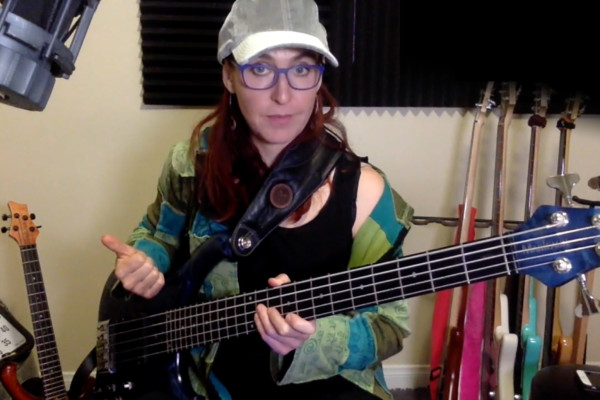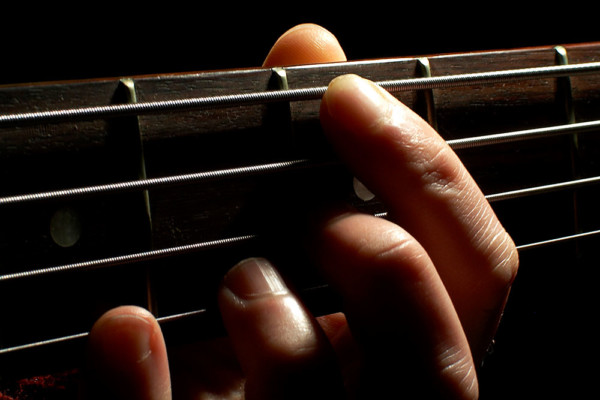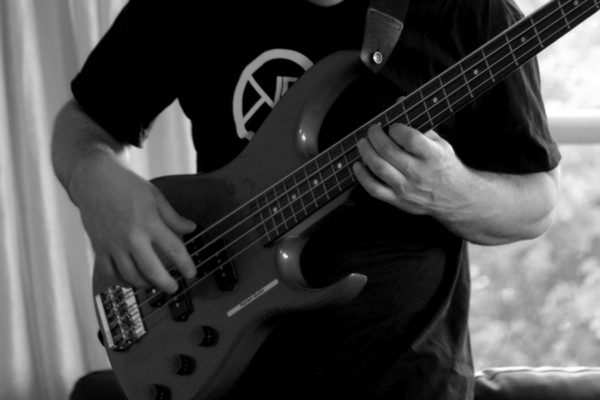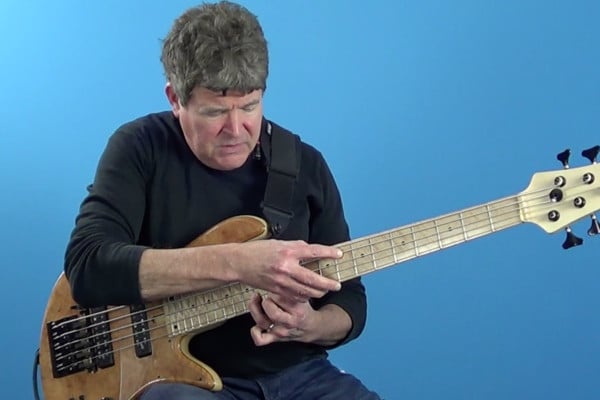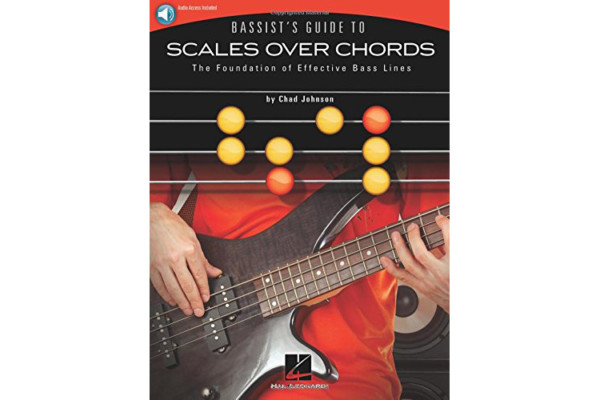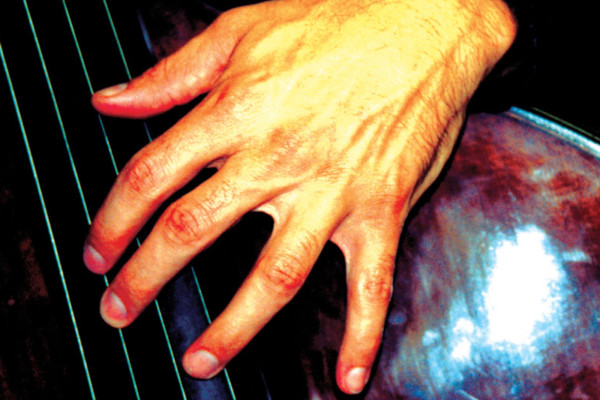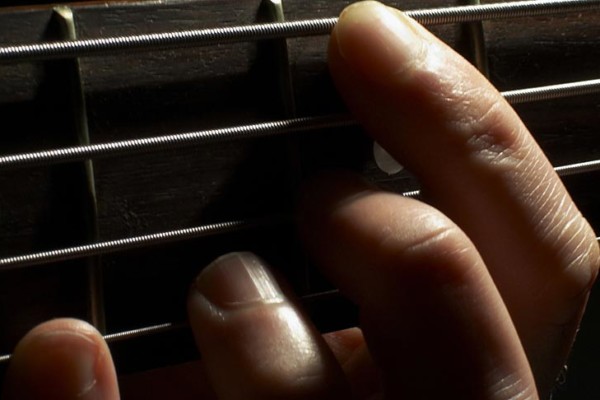Chords Archives
Easy Music Theory For Bass: Tenth Chords
Let’s bring in the new year with a touch of theory and chord building on the bass. This lesson is all about 10th chords... what they are, how to play them, and a quick exercise to help you practice major and minor chords.
Practicing Scales vs. Arpeggios
Q: Should I spend my time in the shed practicing scales or arpeggios? Why one over the other? A: Ultimately, you want to be familiar with everything relating to the music you want to play and your instrument, but it’s good to prioritize. When trying to prioritize in the shed, it’s important to understand why you are working on this...
Talking Technique: Thinking Inside the Box – Upper Structure Pentatonics
Today’s episode is all about thinking inside the box. Pentatonic box shapes only on the G and D string are easy to finger and make for quite the pizzazz when you lay them over a variety of chords. Check out the PDF to guide you along the easy shape and what colors you introduce using them with various chords.
Should I Bother With Modes?
Q: First of all thank you very much for your past reply to my question! Lately while working on improvisation and in particular on linear melody through changes, I started asking myself why I should bother with modes. For instance, if there’s a Fmin7 moving to an Amin7 chord and I want to think about those two chords as F...
What Scales Do I Use Over a Minor ii-V Progression?
Q: I have a question about minor ii-V’s. In a major ii-V7-I progression, each chord is diatonic to the I chord. The ii chord is Dorian, the V chord is Mixolydian and it resolves to a Major tonic. In a minor ii-V, the 1 would be natural minor, which makes the ii chord Locrian (7th degree of the major scale)...
Applying Licks from Transcriptions
Q: I consider myself as a good reader. I can sight read music both in bass and treble clef, and I like to challenge myself with complex etude like those on the Patitucci book or classical pieces. But every time I come across jazz studies, (bebop in particular), I struggle to understand what’s in the mind of the player and...
Advanced Bass: Creative Chordal Connections
This challenging bass lesson highlights Creative Chordal Connections, enabling you to understand complex jazz concepts while revealing how learning to play chords on the bass will help you to hear different chord qualities with greater clarity and ease. Follow along with the transcription and the video below.
Melodic Minor vs. Diminished Scales Over Dominant Chords
Q: You know, jazz theory can be really, really confusing! I know that you can use a melodic minor a half step above a dominant chord as a substitution before resolving to the I-chord to emphasize tension notes (creating an out-sound). But, apparently, you can also use a whole-half diminished scale a half step up from the same dominant chord....
Hal Leonard Releases Book on Scales Over Chords
Hal Leonard Corp. has published the “Bassist’s Guide to Scales Over Chords: The Foundation of Effective Bass Lines.” The book looks at how to apply scales in a musical way, which is essential knowledge for those learning how to create and improvise bass lines and solos. The book, which covers 11 scales and features 136 audio tracks and 17 extended...
The Lightbulb Moment: Major? Minor? Why Bother?
Being a bass player is awesome. Not only do you get to hang in the back and groove, but you get to skate by on all of that “theory” stuff that guitar players have to deal with. You know… like chords and whatnot. We only have to play one note at a time! That’s like… way easier. I wouldn’t want...
Introduction to “Shell Voicings” on Bass
Playing chords on the upright doesn’t only add to our tonal palette, it also strengthens our knowledge of a tune and our instrument. Some voicings, however, are more pleasant than others. Three and four note chords can easily become “muddy” and unclear, especially in the mid to lower register. As a result, many bass players choose to play Shell Voicings,...
Teaching (and Learning) Chords on the Bass
Q: I had a student ask if there was some way of learning chords like kids learn multiplication tables. Sounds like it would be handy but I couldn’t think of anything like that. Any ideas? A: I assume your student was thinking of the grid-like table for learning multiplication. I also couldn’t think of a way to do that visually,...
